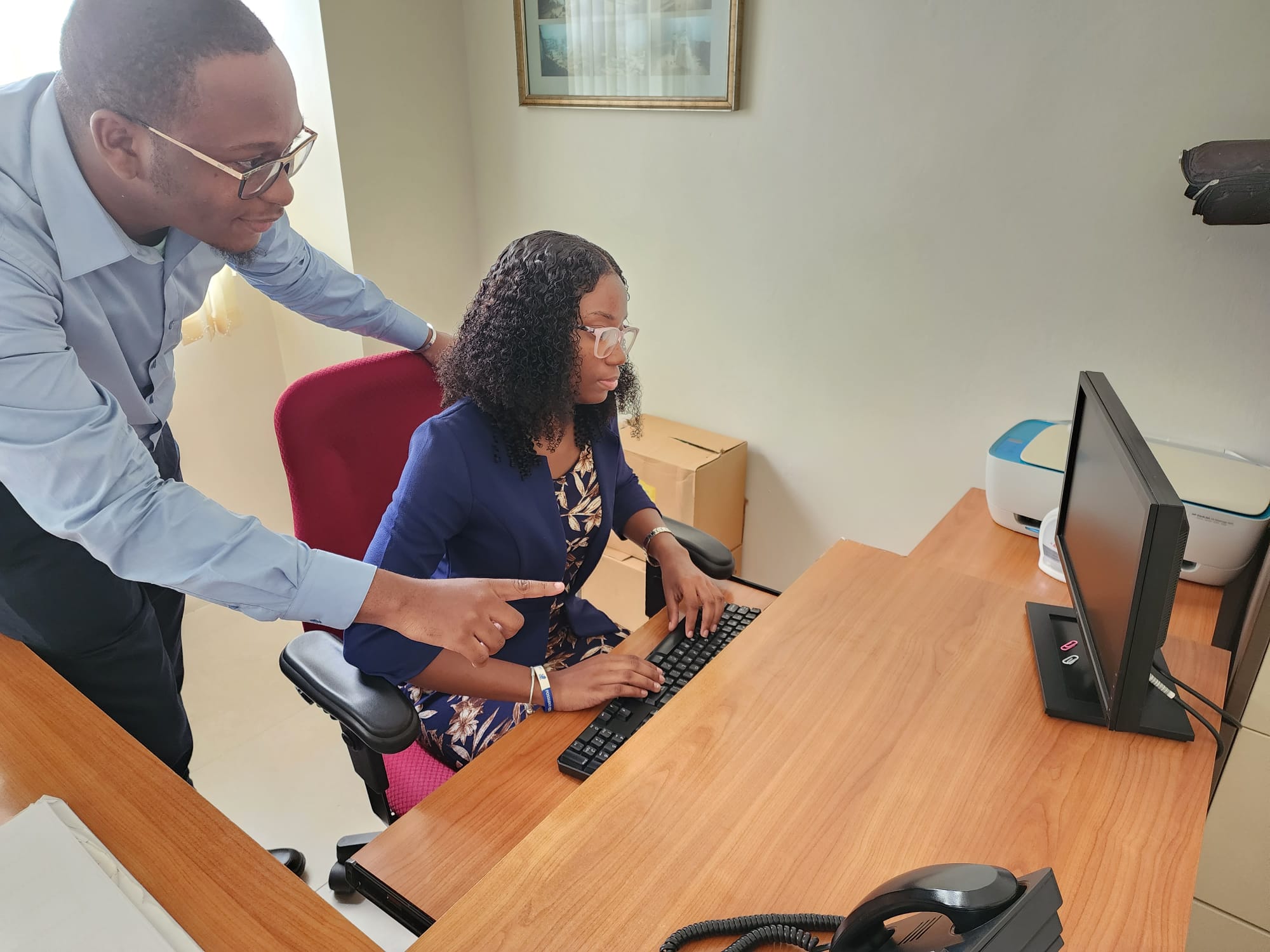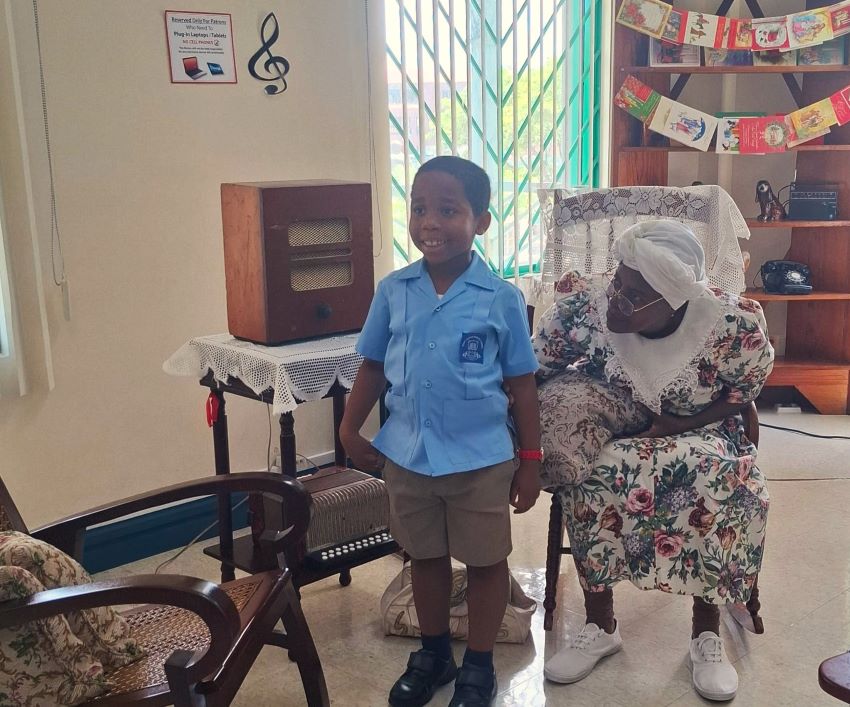Barbadians here and in the diaspora now have the opportunity to hear narrated stories about this island’s history and ‘characters’ through the National Library Service’s (NLS) “Radio Bimshire: Voice of the National Library Service Barbados” audio online platform.
The platform was launched today at the NLS’ Fairchild Street headquarters.
Director of the NLS, Jennifer Yarde, and its former Deputy Director, Evonda Callender, encouraged all Barbadians to listen to the stories and expressed how happy they were to have reached such a significant milestone in preserving and sharing Barbados’ oral history.
Ms. Yarde stated that “Radio Bimshire emerges as a bold new chapter” in the NLS’ offerings, where persons can listen to the lived experiences of people from every parish and walk of life. She said the audio platform, https://bit.ly/radiobimshire, offers free online access to these stories while promoting digital literacy and inclusivity.
“It is more than a streaming platform; it is a cultural sunscape built to honour, preserve, and share the spoken word legacy of Barbados, from the market vendors in Bridgetown to the elders recalling village life, from the rhythms of the tuk band to the recollections of the historic moments of the 1937 disturbances. Radio Bimshire turns these stories into a living archive. Now, through streaming and podcast, people from all over the world can connect with Barbados’ culture anytime, anywhere,” the Director said.
She also stressed that sharing Barbados’ oral history is important in understanding its heritage and identity.
“It is through our oral history that we hear not just about great national events, but about how ordinary people lived, worked, celebrated, mourned, and made meaning of their world. It could be a formal interview, or it could be a story passed down from generations, from folklore to family stories. Oral history is how we always make sense of our world, or pass on what matters most,” Ms. Yarde stated.
Meanwhile, Mrs. Callender explained how the information was gathered for “Radio Bimshire”.
She disclosed that in 1986, while at the NLS conducting interviews for its oral history project, she felt it was important to have first-hand recorded accounts from persons on subject matters of historical significance, including the 1937 Riots, the Constitutional Conference, the train service to Belleplaine, St. Andrew, and the process of turning flour bags into clothing.
Ms. Callender said: “We went out to collect and preserve the history of Barbados, … the real history of Barbados, without sugarcoating or hiding important details, in all its formats, whether it was popular or unpopular, it needed to be said.”
The former Deputy Director stated that the NLS should continue to carry out its mandate of collecting, preserving, retrieving, and providing in-depth information in all formats to enrich, empower, and inform the public, especially on the history of Barbados.
“We need to collect it. We need to gather it; it’s going to be controversial, … but we are the library. We have no political alliance to no one. What you’re supposed to do is collect the history of the country in every format, both print and non-print, and make it available to all the generations to come. The library’s mission is to collect the heritage of Barbados in all formats, whether it’s from a rum shop, whether it is a brothel, wherever it is you go, collect it,” Ms. Callender stressed.
People who visit the website will hear recordings such as Dumplings in De Stew – One For The Road, Ossie Moore stories, and others written by Jeanette Layne-Clarke and Addington Forde, and narrated by Alfred Pragnell, Marvo Manning, Tony Thompson, and others.
The NLS aims to upload more content soon to the site on the History of Barbados, including the 1937 Riots, events during the 1940s and 1950s, the Birth of Adventism in Barbados, and more, as told by the late historians Dr. Karl Watson, Trevor Marshall, and Professor Pedro Welch. (PR/GIS)
Caption: West Terrace Primary student, Yuri Nicholls, performed the “ceremonial turning on” of Radio Bimshire at the National Library Service while “Grandma” looks on

 Government1 week ago
Government1 week ago
 Sports3 weeks ago
Sports3 weeks ago
 Business4 weeks ago
Business4 weeks ago
 Religion3 weeks ago
Religion3 weeks ago
 Business3 weeks ago
Business3 weeks ago
 Sports2 weeks ago
Sports2 weeks ago
 Government2 weeks ago
Government2 weeks ago
 International2 weeks ago
International2 weeks ago

































